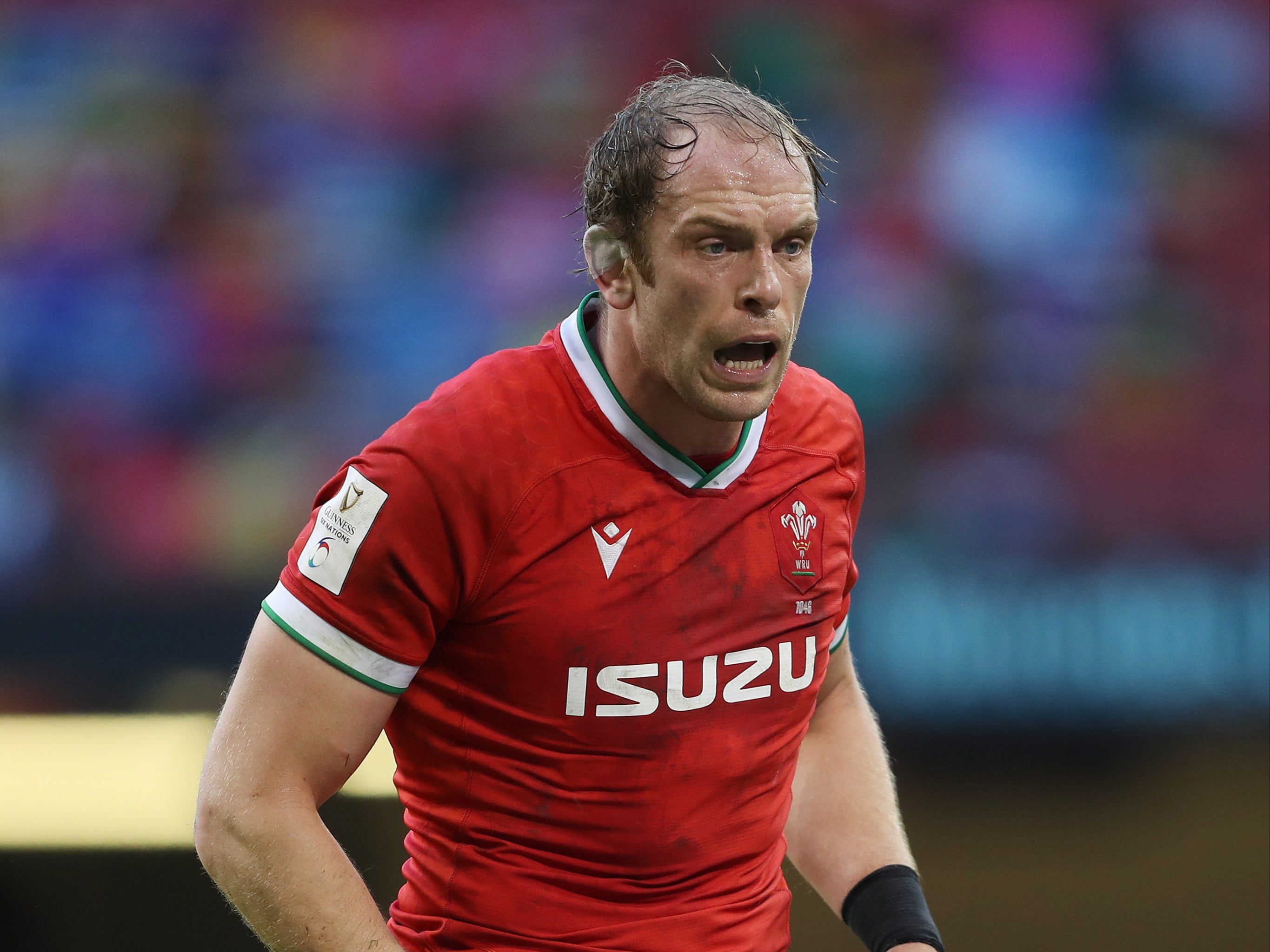Alun Wyn Jones making ‘very positive’ progress in injury recovery
The Ospreys forward has been sidelined for four months and undergone two operations

Your support helps us to tell the story
From reproductive rights to climate change to Big Tech, The Independent is on the ground when the story is developing. Whether it's investigating the financials of Elon Musk's pro-Trump PAC or producing our latest documentary, 'The A Word', which shines a light on the American women fighting for reproductive rights, we know how important it is to parse out the facts from the messaging.
At such a critical moment in US history, we need reporters on the ground. Your donation allows us to keep sending journalists to speak to both sides of the story.
The Independent is trusted by Americans across the entire political spectrum. And unlike many other quality news outlets, we choose not to lock Americans out of our reporting and analysis with paywalls. We believe quality journalism should be available to everyone, paid for by those who can afford it.
Your support makes all the difference.Ospreys head coach Toby Booth says Alun Wyn Jones has “ticked off a lot of boxes” in his recovery from a shoulder injury.
Jones is continuing his rehabilitation in the Wales camp this week. He has not played for four months.
He was hurt while captaining Wales in their Autumn Nations Series opener against New Zealand, and subsequently underwent two operations.
Wales conclude their Guinness Six Nations campaign with home games against title favourites France on Friday week, followed by Italy eight days later.
Lock Jones has not been added to the Wales squad, and no comeback appearance has yet been confirmed, but Booth reported that the 36-year-old continues making encouraging progress.
“He has ticked off a lot of boxes,” Booth said. “His scan results were very positive. He needs to do different aspects of training, and not necessarily team preparation.
“They (Wales) are in a fallow week and we are preparing a team (for a United Rugby Championship game on Sunday), so it makes sense in terms of being able to pull him in and out of parts of sessions, instead of just exposing him.
“We are in constant dialogue with their medical and strength and conditioning teams. We need a joined-up approach on a lot of what we do, and this is a good example of that.
“He is there for this week, and we will see how he presents at the end of the week and where that takes us after that.
“He is not available for us, he’s not quite ready, but we are all contributing a part to getting him back on the pitch.”
It's what is right for the player, and whether it fits
Asked if he expected Jones’ first game back to be for the Ospreys or Wales, Booth added: “It’s what is right for the player, and whether it fits.
“If he ticks off boxes, then he will want to play a part in the next available game.
“Whether that’s internationally or for us – common-sense would probably say it’s for us – but these things don’t work out with the way the season is structured, so you have to wait and see.
“The one thing I’ve learnt about Al is that the worst thing you can say to him is that he can’t do something, because he will go out of his way to prove you wrong.”
Jones, apart from the New Zealand game, and his fellow British and Irish Lions such as George North, Leigh Halfpenny, Ken Owens, Justin Tipuric and Josh Navidi have been unavailable to Wales head coach Wayne Pivac this season because of injury.
Flanker Navidi, who has been sidelined by a shoulder problem, could return in Cardiff’s URC appointment with Ulster in Belfast on Friday.
Booth, meanwhile, says that North is “very close” after a lengthy recovery process from a knee injury.
“After being out for so long, it is important that we do the right thing for George and for the team,” Booth said.
“He is probably going to miss out this weekend. We need to get more training under his belt before we put him in, because once he is out there we can’t control it.
“We have to make sure he has had enough volume, so as not to expose himself to further injury.
“He is very close. He has been out training with us in team sessions, so it’s just about backing up a complete week, maybe two complete weeks.
“In an ideal world, when you have been long-term injured, you really need at least a couple of full weeks to understand exactly where you are.”
Join our commenting forum
Join thought-provoking conversations, follow other Independent readers and see their replies
Comments